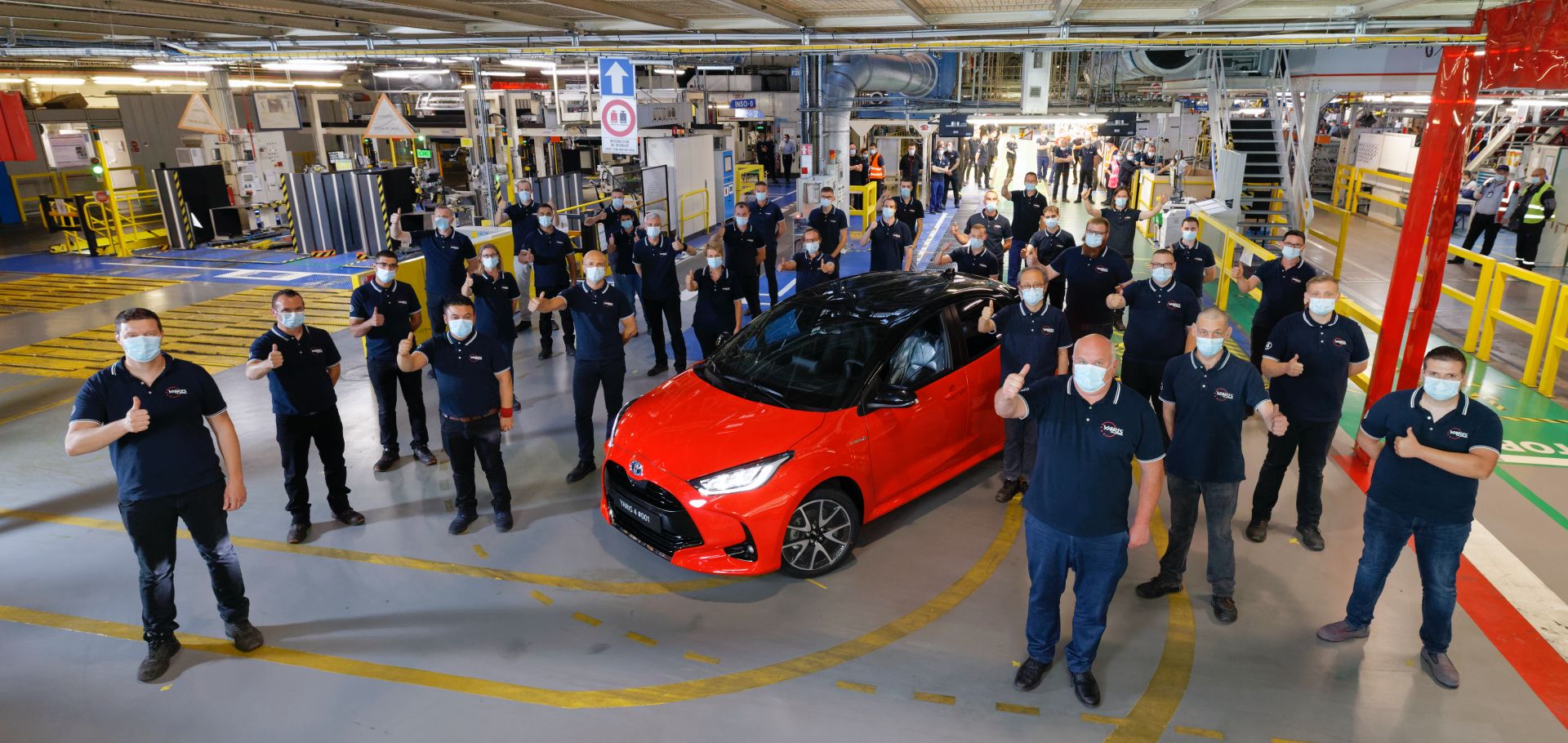Toyota has started production of the new generation Yaris subcompact hatchback at its plant in Valenciennes, France on July 6.
Marking the first application of Toyota New Global Architecture (TNGA) in compact cars, the fourth-generation Yaris is said to bring “enhanced dynamic performance, improved ride, handling and safety, and eye-catching design”.
Toyota Motor Manufacturing France (TMMF) has become the fourth plant in Europe to have introduced TNGA-based vehicle production after Toyota Motor Manufacturing Turkey (C-HR and Corolla Sedan), Toyota Motor Manufacturing UK in Burnaston (Corolla Hatchback and Touring Sports) and Toyota Motor Russia (Camry and RAV4).
Watch: The Toyota GR Yaris Is Manufactured In A Very Special Factory
The investment strengthens Toyota Motor Europe’s strategy to localize production and maximize manufacturing capacity. The new Yaris’ main vehicle components are also built in Europe, including the 1.5-liter TNGA engine which is built by Toyota Motor Manufacturing Poland.
Toyota has so far invested €300 million ($338 million) to retool the French factory for the new Yaris and will invest another €100 million ($113 million) to build a second TNGA-based vehicle, the Yaris Cross. The subcompact SUV is expected to enter production in Valenciennes in mid-2021, driving the plant’s annual output to around 300,000 units. TMMF expects the number of its permanent employees to reach 3,600 by the end of 2020, out of a total employment of 4,800.
The Toyota Yaris has traditionally been the brand’s best-selling model in Europe. In 2019, Yaris accounted for more than 20 percent of Toyota’s sales in Europe (224,368 units). The latest generation is expected to build on the success of its predecessors, bringing new proportions, ‘big-small’ packaging with roomy interior despite the compact exterior, and an enhanced level of driving dynamics all thanks to the TNGA GA-B platform.
The fourth-generation Hybrid system of the new Toyota Yaris now offers longer EV driving capabilities as well as over 20 percent improvement in CO2 emissions (85 g/km) and fuel economy (3.7 l/100km or 76.3 mpg UK) compared to the outgoing generation.









